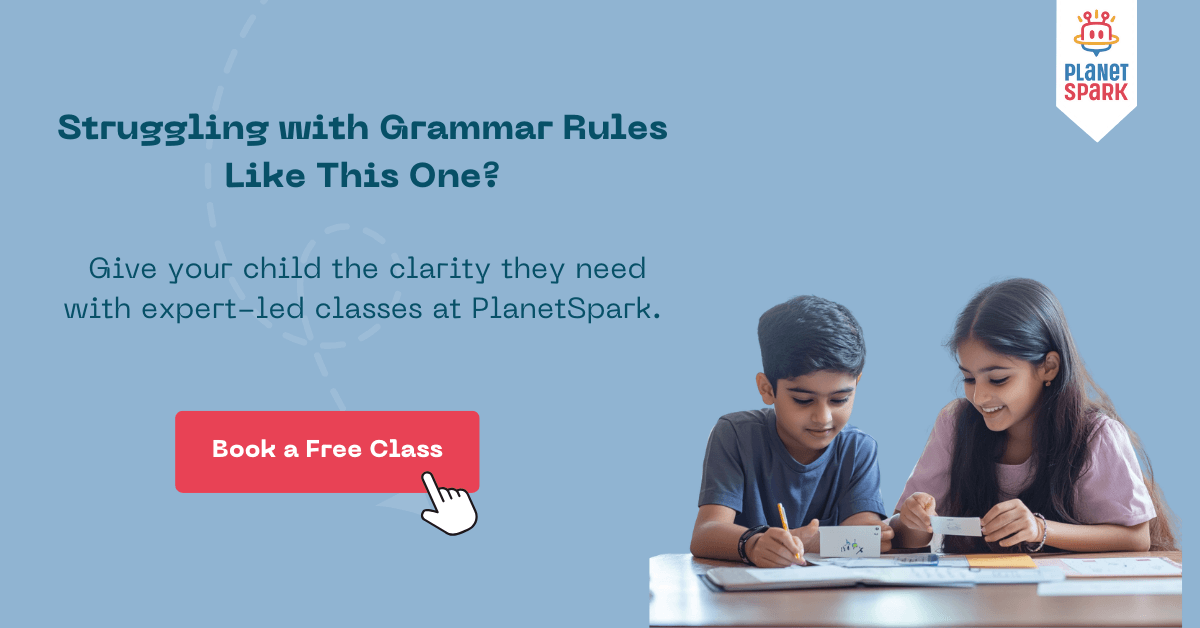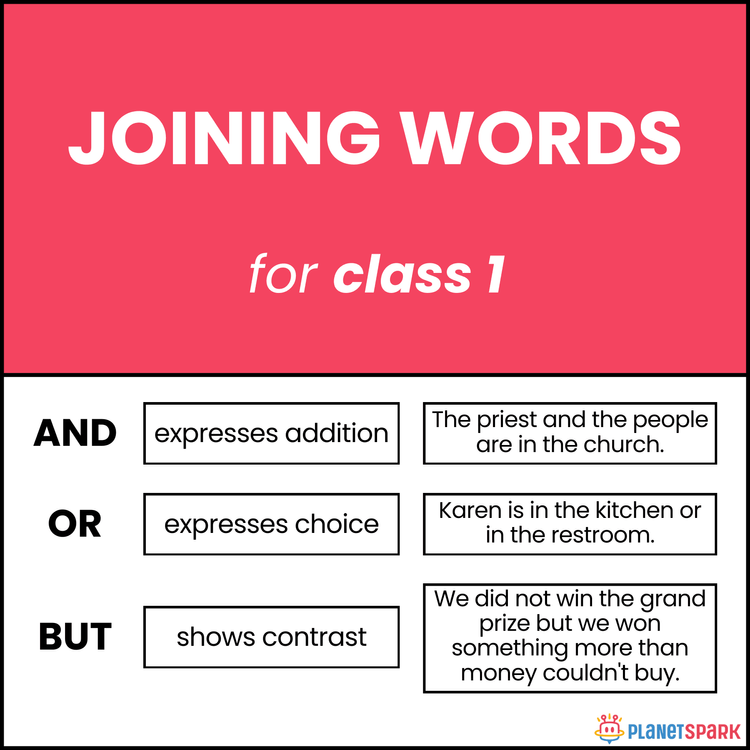Conditional Clauses in English Grammar: Types, Examples & Rules

Table of Contents
- What is a Conditional Clause?
- Why Are Conditional Clauses Important?
- The Structure of a Conditional Clause
- Types of Conditional Clauses
- Conditional Clauses in Everyday Life
- Common Mistakes with Conditional Clauses
- Tips to Master Conditional Clauses
- How PlanetSpark Helps You Master Grammar
- Conclusion
- FAQs on Conditional Clauses
Mastering English grammar often comes down to understanding how to connect ideas and show relationships between them. One powerful way to do this is through conditional clauses. Whether you’re writing an essay, preparing for competitive exams, or simply improving your conversational English, conditional clauses are essential tools to express possibilities, hypotheses, and cause–effect scenarios.
In this blog, we’ll cover everything about conditional clauses their meaning, types, examples, and practical applications. Plus, if you’re struggling to grasp tricky grammar rules, we’ll show you how PlanetSpark’s Grammar Courses can make learning effortless, interactive, and fun.
What is a Conditional Clause?
A conditional clause is a part of a sentence that expresses a condition something that must happen before another event can occur. It usually starts with words like if, unless, provided that, as long as, or in case.
Example:
If it rains, we will stay home.
Here, "If it rains" is the conditional clause. It sets the condition for the second part, "we will stay home."
Conditional clauses help us talk about:
Real possibilities
Hypothetical situations
Cause-and-effect relationships
Regrets or imaginary pasts

Why Are Conditional Clauses Important?
Conditional clauses are everywhere in daily conversations, professional communication, exam writing, and even storytelling.
In conversations: If you study hard, you’ll succeed.
In workplace scenarios: Unless we meet the deadline, the project will be delayed.
In academic writing: If global warming continues, sea levels will rise.
They give your speech and writing clarity, logical flow, and precision. Without them, your language feels incomplete or vague.
The Structure of a Conditional Clause
Most conditional sentences follow this structure:
[If/Unless + Condition], [Result/Consequence]
Example: If you wake up early, you will catch the bus.
But the structure can be reversed too:
You will catch the bus if you wake up early.
The meaning remains the same.
Want to simplify English grammar with expert guidance?
Join PlanetSpark’s Grammar Course to master conditionals, tenses, and more with live classes and interactive practice.
Start with a free booking trial!
Types of Conditional Clauses
Conditional clauses are categorized into several types based on how realistic or hypothetical the condition is. Let’s explore each type in detail with examples.
1. Zero Conditional
Used for general truths, scientific facts, and things that are always true.
Structure:
If + Present Simple, Present Simple
Examples:
If you heat water to 100°C, it boils.
If you mix red and blue, you get purple.
2. First Conditional
Used for real or possible situations in the present or future.
Structure:
If + Present Simple, Will + Base Verb
Examples:
If you study, you will pass the exam.
If it rains, we will cancel the trip.
3. Second Conditional
Used for hypothetical or unlikely situations in the present or future.
Structure:
If + Past Simple, Would + Base Verb
Examples:
If I were rich, I would travel the world.
If she studied harder, she would score better marks.
4. Third Conditional
Used to talk about past regrets or situations that didn’t happen.
Structure:
If + Past Perfect, Would Have + Past Participle
Examples:
If I had studied, I would have passed the exam.
If they had left earlier, they would have caught the train.
5. Mixed Conditional
Used to mix time references, often connecting past conditions to present results.
Examples:
If I had worked harder in school, I would be successful now.
If she were more confident, she would have spoken at the event.
6. Other Conditional Forms
Unless: Unless you try, you won’t succeed.
Provided that: You can borrow the book provided that you return it tomorrow.
As long as: As long as you are honest, people will trust you.
In case: Take an umbrella in case it rains.
Want to practice these conditionals with expert trainers?
Join PlanetSpark’s Grammar and Communication Course and practice with live examples, quizzes, and interactive activities.
Start with a free trial grammar class!
Conditional Clauses in Everyday Life
Conditional clauses aren’t just for textbooks. Here are some examples of how you already use them daily:
If I’m late, start without me.
Unless you call, I won’t know where to meet you.
As long as you follow the rules, you’ll be fine.
They make your communication natural, logical, and impactful.
Common Mistakes with Conditional Clauses
Even advanced learners make mistakes with conditionals. Let’s clear some up:
❌ If I will see him, I will tell him.
✅ If I see him, I will tell him.❌ If I would have studied, I would pass.
✅ If I had studied, I would have passed.❌ Unless you don’t work hard, you will fail.
✅ Unless you work hard, you will fail.
Tips to Master Conditional Clauses
Practice daily conversations using conditionals.
Mix up structures use "unless," "provided that," and "as long as."
Listen and read actively pay attention to how native speakers use them.
Take guided practice sessions for feedback and correction.
How PlanetSpark Helps You Master Grammar
PlanetSpark offers a modern way to learn English grammar:
Interactive live classes with expert mentors
Real-life communication practice
Fun quizzes and activities
Personalized feedback for quick improvement
With PlanetSpark’s grammar course, conditionals and other tricky topics become second nature.

Conclusion
Conditional clauses are the backbone of clear, logical communication. From simple everyday talk to complex essays, they help you express cause, effect, and possibility. By mastering zero, first, second, third, and mixed conditionals, you’ll gain precision in both spoken and written English.
And if grammar rules feel overwhelming, PlanetSpark’s Grammar and Communication Course makes it easy, practical, and engaging. You’ll not just learn conditionals you’ll use them with confidence.
FAQs on Conditional Clauses
Q1. What is a conditional clause in English grammar?
A conditional clause shows a condition that must be met for something else to happen. It often starts with if, unless, provided that, etc.
Q2. What are the main types of conditional clauses?
The main types are zero, first, second, third, and mixed conditionals. Each expresses different levels of possibility or reality.
Q3. Can conditional clauses be used in formal writing?
Yes, they are widely used in essays, reports, and academic writing to show logical relationships and cause-effect reasoning.
Q4. What’s the difference between “if” and “unless”?
If shows a condition, while unless shows the opposite. Example: If you study, you’ll pass. / Unless you study, you’ll fail.
Q5. Why do learners often confuse conditionals?
Because they mix verb tenses incorrectly. Practice with clear rules and guided examples helps avoid confusion.
Q6. Can conditional sentences start without “if”?
Yes, phrases like as long as, provided that, in case can replace “if” to express conditions.
Q7. How can I improve my use of conditionals?
By practicing them daily in writing and speaking, and learning from expert feedback like in PlanetSpark’s grammar sessions.
Download Free Worksheets
Personalized Communication Report
Record a video to get a AI generated personalized communication report for your child

Hi There, want to try these
tips for your child with
LIVE with our expert coach?
Let's check your child's
English fluency

